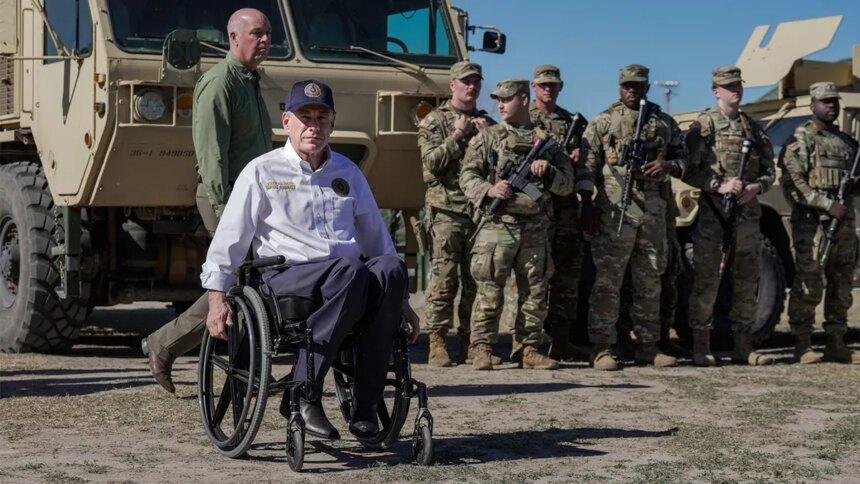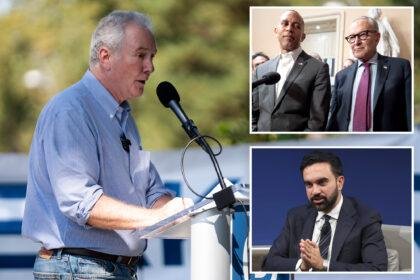Texas National Guard Deployment: A Response to Rising Tensions
In a decisive move reflecting the ongoing tensions surrounding federal property security, Texas Governor Greg Abbott announced the immediate deployment of elite National Guard units. This announcement, made via social media platform X, underscores the state’s readiness to assist in safeguarding federal facilities amid escalating protests in various cities across the United States.
Context of the Deployment
Governor Abbott’s announcement comes in the wake of a request from the White House for additional support to bolster security in cities like Chicago and Portland, which have recently experienced significant protests targeting federal properties. The governor’s succinct message, “The elite Texas National Guard. Ever ready. Deploying now,” emphasizes both confidence in the state’s military capabilities and a commitment to national security.
Historically, the National Guard has played a crucial role in domestic security, often stepping in during times of civil unrest. This deployment marks a continuation of that tradition, as states respond to federal calls for assistance in maintaining order.
Federal and State Coordination
The deployment is part of a broader strategy coordinated with federal authorities. President Donald Trump has called for reinforcements from various states, asserting that the troops will “protect federal workers and property from escalating threats.” This move has sparked a complex dialogue about the role of state military forces in federal matters, particularly in light of recent protests that have sometimes turned violent.
Illinois Governor J.B. Pritzker has publicly criticized the deployment, labeling it an “invasion.” He expressed concerns that the federal government is overstepping its bounds by sending troops from one state to another without local consent. Pritzker’s remarks highlight a growing tension between state and federal authorities, particularly among Democratic governors who are wary of federal intervention in local matters.
The Political Landscape
The political ramifications of this deployment are significant. Abbott’s support for the President’s decision aligns with a broader trend among Republican leaders who advocate for a strong law-and-order approach in response to civil unrest. In contrast, Democratic leaders like Pritzker are pushing back against what they perceive as federal overreach.
Abbott defended the President’s decision, stating that he had “fully authorized the President to call up 400 members of the Texas National Guard to ensure safety for federal officials.” He further emphasized that federal and state leaders must either fully enforce protection for federal employees or allow the Texas Guard to take the lead. This statement reflects a growing sentiment among some state leaders that they must take proactive measures to ensure safety and security in their jurisdictions.
Legal Challenges and Public Sentiment
As the deployment unfolds, legal challenges are emerging in various states. Some officials are seeking court orders to block the deployment of National Guard troops, arguing that it infringes on state sovereignty. This legal landscape adds another layer of complexity to an already contentious situation.
Public sentiment appears to be divided. Abbott’s announcement has garnered millions of views and sparked discussions among supporters who praise his decisive leadership. Many Texans view the National Guard as a vital resource for maintaining order and protecting communities. However, critics argue that deploying troops in response to protests could exacerbate tensions and lead to further unrest.
Historical Comparisons
This situation is reminiscent of past instances where state and federal forces have clashed over the deployment of military resources. For example, during the civil rights movement, federal troops were deployed to enforce desegregation in schools, often against the wishes of state governors. Such historical precedents highlight the delicate balance between state rights and federal authority, a theme that continues to resonate in contemporary political discourse.
Conclusion
The deployment of the Texas National Guard represents a significant moment in the ongoing dialogue about federal and state roles in maintaining public order. As tensions rise and protests continue, the actions taken by leaders like Governor Abbott and President Trump will likely shape the future of state-federal relations. With legal challenges looming and public opinion divided, the coming weeks will be critical in determining the effectiveness and implications of this military deployment. As Abbott succinctly stated, the Texas National Guard stands “ever ready” to respond to the challenges ahead.











